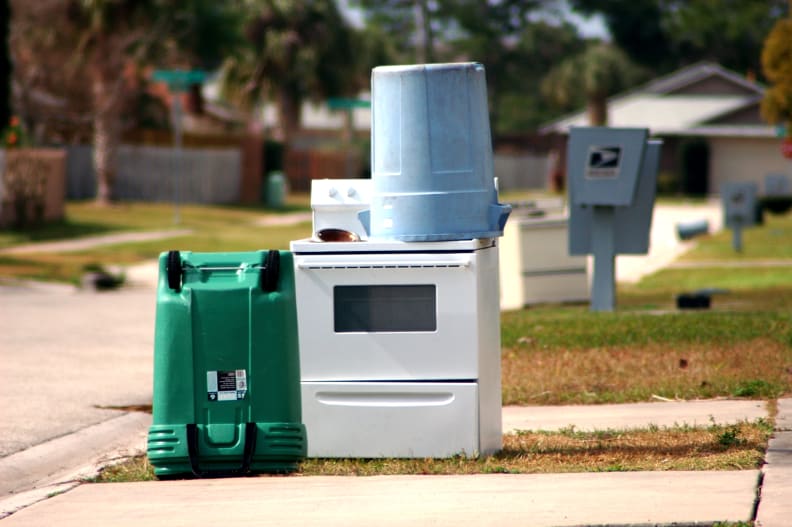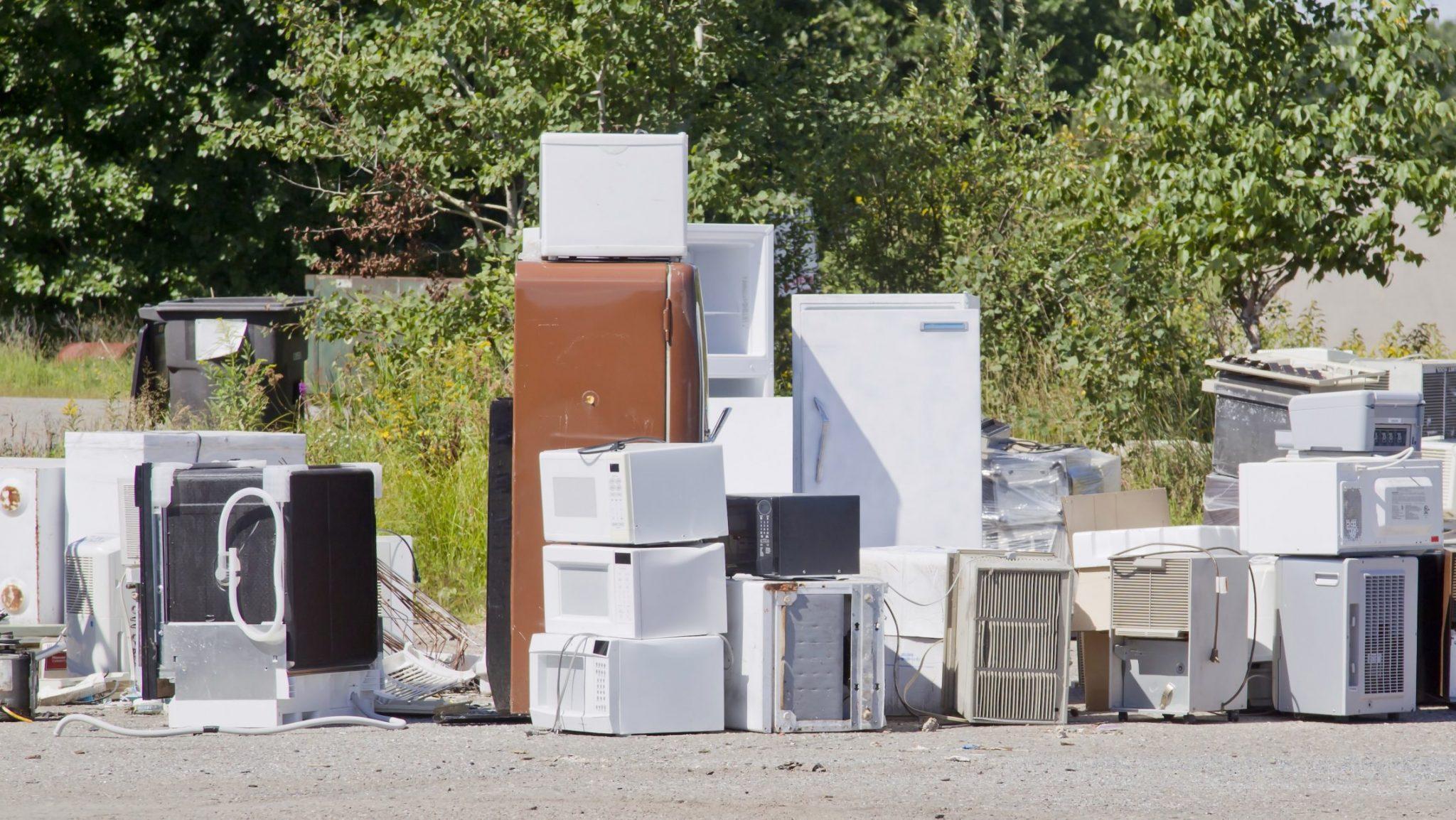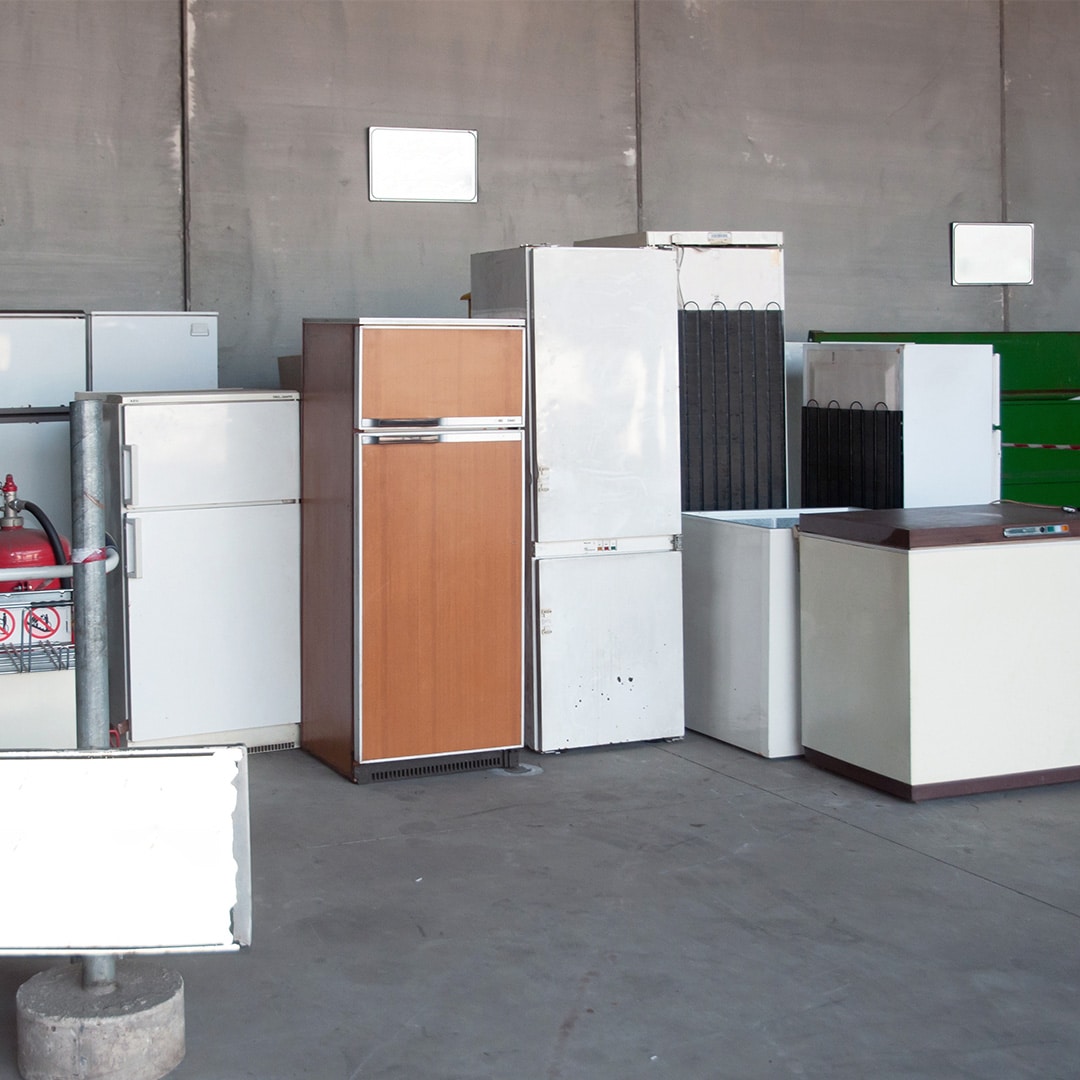The Best Way To Dispose Of An Old Microwave

As an appliance that has become an integral part of our daily lives, microwaves play a vital role in modern cooking and food preparation. However, when the time comes to replace an old microwave, the question of proper disposal arises. Improper disposal of electronic waste, or e-waste, can have severe environmental consequences, making it crucial to understand the best practices for disposing of old microwaves responsibly and sustainably.
Understanding the Impact of E-Waste

Electronic waste, including old microwaves, contains a variety of materials that can be harmful to the environment if not disposed of correctly. Microwaves, in particular, are made up of components like glass, plastic, metals, and potentially hazardous substances such as beryllium, cadmium, and mercury. Improper disposal can lead to the release of these toxic materials into the soil, water, and air, posing risks to human health and the ecosystem.
The environmental impact of e-waste is a growing concern, with an estimated 50 million metric tons of e-waste generated globally each year. Only a fraction of this waste is recycled or disposed of responsibly, highlighting the importance of individual actions in reducing the environmental footprint of electronic devices.
Responsible Disposal Methods for Old Microwaves

When it comes to disposing of an old microwave, there are several options available, each with its own set of advantages and considerations. Here are some of the most effective and environmentally conscious methods:
Recycling Centers and E-Waste Programs
One of the best ways to ensure the proper disposal of an old microwave is to take it to a certified recycling center or participate in e-waste collection programs. These facilities are equipped to handle the safe dismantling and recycling of electronic devices. They separate the various components, ensuring that materials like glass, metals, and plastics are reused or disposed of in an environmentally friendly manner.
Many countries and regions have established specific e-waste recycling programs, often in partnership with local governments or environmental organizations. These programs provide convenient drop-off locations or even offer pickup services for large electronic items. By utilizing these services, you can ensure that your old microwave is processed responsibly, reducing its environmental impact.
Manufacturer Take-Back Programs
Some microwave manufacturers offer take-back programs, where they accept old models for recycling or refurbishment. These programs often provide incentives, such as discounts on new purchases or free recycling services, encouraging customers to return their old appliances. Check with the manufacturer of your microwave to see if they offer such a program, as this can be a convenient and environmentally conscious way to dispose of your old appliance.
Donation and Reuse
If your old microwave is still in working condition, consider donating it to a local charity or second-hand store. Many organizations accept functional electronic items, which can be refurbished and resold or given to those in need. This not only extends the life of your microwave but also reduces the demand for new production, thus lowering the environmental impact of manufacturing.
When donating, ensure that the microwave is clean, in good condition, and includes all necessary parts and manuals. Some organizations may also accept non-functional microwaves for parts or for responsible disposal.
Local Collection Events
Keep an eye out for local collection events or community drives focused on electronic waste. These events are often organized by environmental groups, municipalities, or even schools, providing a convenient and centralized location for residents to drop off their e-waste. By participating in these events, you contribute to a collective effort to reduce the environmental impact of electronic devices in your community.
Safety Considerations and Precautions
When disposing of an old microwave, it’s essential to prioritize safety. Microwaves contain components that can be hazardous if handled improperly. Always ensure that the microwave is unplugged and turned off before attempting any disposal method. If the microwave is damaged or has exposed wires, exercise caution and consider wearing protective gear, such as gloves and safety goggles.
If you have any doubts or concerns about the condition of your microwave, it's best to seek professional assistance. Contact a local appliance repair service or recycling center to inquire about their policies and procedures for handling potentially hazardous electronic waste.
The Benefits of Responsible Disposal
Choosing to dispose of your old microwave responsibly has numerous benefits, both for the environment and the community. By recycling or donating your appliance, you contribute to the conservation of natural resources, as recycled materials can be used in the production of new items, reducing the need for raw materials and the associated environmental impact of extraction and processing.
Additionally, responsible disposal helps prevent the release of toxic substances into the environment, protecting both human health and the ecosystem. It also supports the creation of a circular economy, where resources are reused and recycled, reducing waste and promoting sustainability.
| Disposal Method | Environmental Impact | Convenience |
|---|---|---|
| Recycling Centers | High: Ensures proper recycling of materials | Moderate: May require travel and planning |
| Manufacturer Take-Back | High: Often includes responsible recycling | High: Provides incentives and convenience |
| Donation/Reuse | High: Extends product life, reduces demand | High: Easy and often supported by local organizations |
| Local Collection Events | High: Collective effort for responsible disposal | High: Centralized and community-driven |

Conclusion

Proper disposal of an old microwave is an essential step in reducing our environmental footprint and promoting sustainable practices. By choosing responsible disposal methods, such as recycling, donation, or manufacturer take-back programs, we can ensure that the materials within our appliances are reused or recycled, minimizing the impact on the environment. Let’s embrace these practices to create a greener and more sustainable future for generations to come.
Can I simply throw my old microwave in the trash?
+No, it is not recommended to dispose of an old microwave in the regular trash. Microwaves contain materials that can be harmful to the environment if not handled properly. Instead, opt for recycling, donation, or manufacturer take-back programs to ensure responsible disposal.
Are there any financial incentives for recycling my old microwave?
+Some recycling centers and manufacturer programs offer incentives such as discounts or rebates for recycling old appliances. Check with your local recycling facilities or the manufacturer of your microwave to see if they provide any financial benefits.
What should I do if my old microwave is damaged or non-functional?
+If your microwave is damaged or non-functional, it’s best to contact a local appliance repair service or recycling center that specializes in handling such items. They will have the expertise and resources to safely dispose of or repair the appliance.
How can I find local e-waste recycling programs or events in my area?
+You can search online for local e-waste recycling programs or events. Many cities and municipalities have dedicated websites or resources listing these programs. Alternatively, you can contact your local waste management department or environmental organizations for information on e-waste disposal options.


